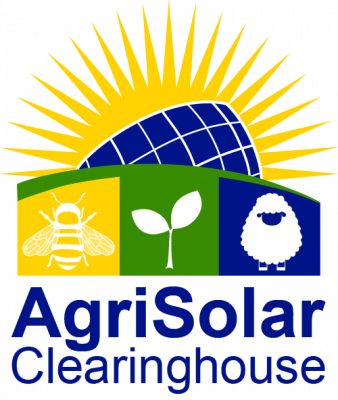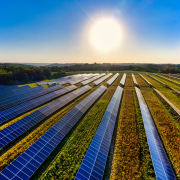AgriSolar News Roundup: Aquavoltaics in Taiwan, AgriSolar in Italy, National Pollinator Week Recognized
Aquavoltaics to be Developed in Taiwan by 2023
“UK solar specialist Lightsource is developing a 150 MW solar park at a fishery in Budai, in Taiwan’s Chiayi County. Construction is expected to commence in June 2023. The company is co-developing the project with Germany’s Green Rock Energy. They plan to start construction on the facility in June 2023. Lightsource said the project will be one of the largest fishery solar farms in Taiwan and will be able to generate 210,000 MWh per year.” – PV Magazine Global
Farmers Could Become Energy Exporters in Italy
“Italy wants the European Union to allow farmers to sell surplus electricity they generate on their land, a measure that could help soften a bloc-wide energy crunch. “Italian agricultural companies have huge surfaces available that should be filled with solar panels,” Agriculture Minister Stefano Patuanelli said in an interview Monday, referring to the roofs of stables, granaries and sheds.
Solar sharing – which involves using farmland for producing crops as well as generating power – has gained traction in recent years, as farmers have sought to cash in on a renewable project boom. It is also not uncommon for them to lease their land and be paid indirectly, without owning the project.” – Bloomberg
National Pollinator Week Recognized
“Agriculture Secretary Tom Vilsack issued a United States Department of Agriculture (USDA) proclamation in recognition and support of National Pollinator Week (June 20-26, 2022). Pollinator species, such as bees, other insects, birds, and bats play a critical role in producing more than 100 crops grown in the United States. Honeybee pollination alone adds more than $18 billion in value to agricultural crops annually. USDA recognizes the critical role pollinators play in agriculture and supports pollinator health through research, data collection, diagnostic services, monitoring, pollinator habitat enhancement programs and pollinator health investments.” – USDA



